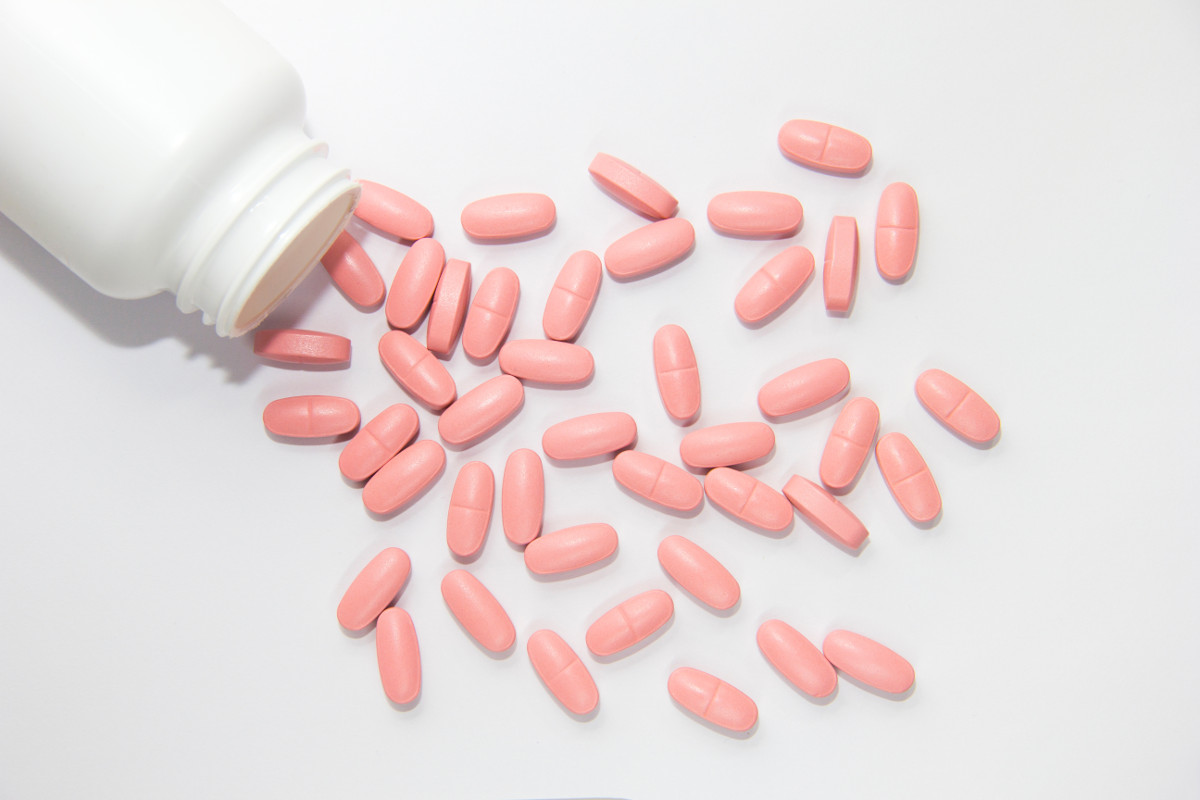In this article, you can find questions such as what Vitamin B3/Niacin is, how much it should be used, and whether it has membranes.
1. What is Vitamin B3 / Niacin and what does it do?
Niacin (also known as vitamin B3) helps convert the food you eat into the energy you need. Niacin is important for the development and function of cells in your body.
2. How Much Nasine/Vitamin B3 Do I Need?
The amount of niacin you need depends on your age and gender. Average daily recommended amounts are listed below in milligrams (mg) niacin equivalents (NE) (excluding infants in the first 6 months of age).
The reason why niacin equivalent is used is that niacin can be produced in the body using tryptophan, an ammonioacid. For example, when you eat turkey, which is high in tryptophan, some of this amino acid is converted to niacin in your liver. Using mg equivalent (mg NE) is calculated for both the niacin you consume and the niacin your body makes from tryptophan. Babies do not make more niacin than tryptophan in their first six months.
| Age | Recommended Amount |
|---|---|
| From birth to 6 months | 2mg |
| 7-12 month old babies | 4 mg NE |
| Children 1-3 years old | 6 mg NE |
| Children 4-8 years old | 8 mg NE |
| Children aged 9-13 | 12 mg NE |
| Young men aged 14-18 | 16 mg NE |
| Young women aged 14-18 | 14 mg NE |
| Adult males (19 years and older) | 16 mg NE |
| Adult women (19 years and older) | 14 mg NE |
| Pregnant teenagers and women | 18 mg NE |
| Breastfeeding teenagers and women | 17 mg NE |
3. What Foods Provide Vitamin B3 / Niacin?
Niacin is found naturally in many foods and is added to some foods. You can get recommended amounts of niacin by eating a variety of foods, including:
- Animal foods such as poultry, beef and fish
- Some types of nuts, legumes, and grains
- Enriched and fortified foods, such as many breads and cereals
4.What Types of Niacin/ Vitamin B3 Dietary Supplements Are Available?
Niacin is found in multivitamin/multimineral supplements. It is also found in B complex dietary supplements and niacin-only supplements. The two main forms of niacin in dietary supplements are nicotinic acid and nicotinamide.
Niacin (in the form of nicotinic acid) is also available as a prescription medication used to treat high blood cholesterol.
What is the Best Vitamin B3 Supplement?

Quality certified and original vitamin B3 / Niacin supplement and B group vitamin varieties are available at bicalite
5. Am I Getting Enough Niacin?
People who eat healthily get enough niacin from the foods they eat. However, some people are more likely than others to have problems getting enough niacin:
- Malnourished people with AIDS, alcohol use disorder, anorexia, inflammatory bowel disease, or liver cirrhosis
- People whose diet contains too little iron, riboflavin or vitamin B6; These nutrients are necessary to convert tryptophan into niacin.
- People with Hartnup disease, a rare genetic disorder
- People with carcinoid syndrome, a condition in which slow-growing tumors develop in the gastrointestinal tract
6. What Happens If I Don't Take Enough Vitamin B3 / Niacin?
Niacin deficiency occurs if you don't get enough niacin or tryptophan from the foods you eat. Severe niacin deficiency leads to a disease called pellagra. Pellagra, which is rare in developed countries, can have the following effects:
- Rough skin that turns red or brown in the sun
- A bright red tongue
- Vomiting, constipation or diarrhea
- Depression
- Headache
- Overstrain
- Aggressive, paranoid or suicidal behavior
- Hallucinations, apathy, memory loss
- In its final stages, pellagra leads to loss of appetite and subsequent death.
7. What are the effects of niacin on health?
Scientists are studying niacin to better understand how it affects health. Here is an example of the findings of this research.
Cardiovascular disease : Scientists have studied the use of high doses of niacin in the form of nicotinic acid to help reduce the risk of heart attack and stroke in people with atherosclerosis. They found that prescription-level nicotinic acid (more than 100 times the recommended consumption) can lower blood levels of LDL (bad) cholesterol, raise levels of HDL (good) cholesterol, and lower triglyceride levels. However, these positive effects on blood lipids (fats) do not affect cardiovascular risks such as heart attack, sudden cardiac death, or stroke. Additionally, experts do not recommend high doses of nicotinic acid to people using statin drugs.
Your healthcare provider must approve and supervise the use of very high doses (such as thousands of milligrams) of nicotinic acid to treat atherosclerosis.
8. Can Vitamin B3 / Niacin Be Harmful?
Niacin naturally contained in foods and beverages is safe. However, dietary supplements containing 30 mg or more of nicotinic acid may cause redness and burning, tingling and itching of the skin on your face, arms and chest. These symptoms may also cause headache, rash, and dizziness.
If you take nicotinic acid as a medicine in doses of 1000 mg/day or more, it may cause more serious side effects. These side effects include:
- Low blood pressure (may increase the risk of falls)
- Overstrain
- High blood sugar levels
- Nausea, heartburn and abdominal pain
- Blurred or distorted vision and fluid buildup in the eyes
- Long-term treatment, especially with extended-release forms of nicotinic acid, may cause liver problems, including hepatitis and liver failure.
Niacin in the form of nicotinamide has fewer side effects than nicotinic acid. However, at doses of 500 mg/day or higher, nicotinamide may cause diarrhea, easy bruising, and increase bleeding from wounds. Doses of 3000 mg/day or higher may cause nausea, vomiting and liver damage.
Daily upper limits for niacin from dietary supplements are listed below.
| ages | Upper Limit |
|---|---|
| From birth to 12 months | Not determined |
| Children 1-3 years old | 10 mg |
| Children 4-8 years old | 15 mg |
| Children aged 9-13 | 20mg |
| Children aged 14-18 | 30 mg |
| Adults 19 and over | 35mg |
9. Does Niacin Interact with Medications or Other Dietary Supplements?
Niacin dietary supplements can interact with some medications you take, decreasing the effects of those medications, and some medications can lower the levels of niacin in your body. Here are some examples:
- Tuberculosis drugs (such as isoniazid and pyrazinamide) interfere with the body's ability to convert tryptophan into niacin. This intervention may lower niacin levels in your body.
- Nicotinic acid in high doses (1500 mg/day or more) may increase blood sugar levels and impair the effectiveness of diabetes medications. These doses may even raise blood sugar in people who do not have diabetes.
Tell your doctor, pharmacist, and other health care providers about any dietary supplements and prescription or over-the-counter medications you are taking. They can tell you whether dietary supplements may interact with your medications. They can also tell if medications affect how your body absorbs, uses or breaks down niacin and other nutrients.
Best Types of Vitamin B3 Supplements for B3 Deficiency

Original B3 vitamin supplement varieties that will add value to your health are on bikalite.com
10. Niacin / Vitamin B3 and Healthy Nutrition
People should get most of their nutrients from food and drink. Foods contain vitamins, minerals, dietary fiber and other components that benefit health. In some cases, fortified foods and dietary supplements are useful when it is not possible to meet the needs of one or more nutrients (for example, during certain life stages, such as pregnancy).
Disclaimer
This fact sheet, prepared by the Office of Dietary Supplements (ODS), provides information that should not replace medical advice. We encourage you to talk with your healthcare providers (doctor, registered dietitian, pharmacist, etc.) about your interest in, questions about, or use of dietary supplements and what may be best for your overall health. Mention of a particular product or service or recommendation from an organization or professional society in this publication does not imply endorsement by ODS of that product, service, or professional advice.
Note: This article is a translation of ODS information and the translation has not been reviewed by ODS.
Source:
- This article was translated from the Niacin article.

